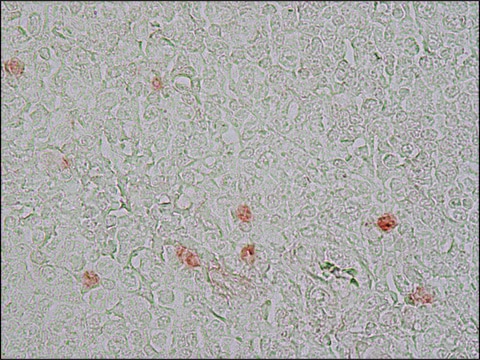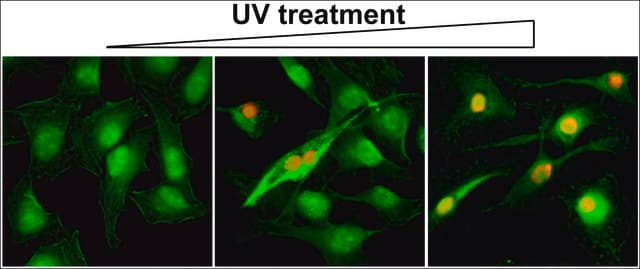SAB5500134
Anti-KI-67 antibody, Rabbit monoclonal
recombinant, expressed in proprietary host, clone SP6, tissue culture supernatant
About This Item
Doporučené produkty
biological source
rabbit
Quality Level
recombinant
expressed in proprietary host
conjugate
unconjugated
antibody form
tissue culture supernatant
antibody product type
primary antibodies
clone
SP6, monoclonal
species reactivity
human (tested)
species reactivity (predicted by homology)
bovine
technique(s)
immunohistochemistry: 1:200
isotype
IgG
UniProt accession no.
shipped in
wet ice
storage temp.
2-8°C
target post-translational modification
unmodified
Gene Information
human ... MKI67(4288)
Související kategorie
General description
Immunogen
Application
Biochem/physiol Actions
Features and Benefits
Physical form
Disclaimer
Ještě jste nenalezli správný produkt?
Vyzkoušejte náš produkt Nástroj pro výběr produktů.
Storage Class
10 - Combustible liquids
wgk_germany
WGK 2
flash_point_f
Not applicable
flash_point_c
Not applicable
Osvědčení o analýze (COA)
Vyhledejte osvědčení Osvědčení o analýze (COA) zadáním čísla šarže/dávky těchto produktů. Čísla šarže a dávky lze nalézt na štítku produktu za slovy „Lot“ nebo „Batch“.
Již tento produkt vlastníte?
Dokumenty související s produkty, které jste v minulosti zakoupili, byly za účelem usnadnění shromážděny ve vaší Knihovně dokumentů.
Zákazníci si také prohlíželi
Náš tým vědeckých pracovníků má zkušenosti ve všech oblastech výzkumu, včetně přírodních věd, materiálových věd, chemické syntézy, chromatografie, analytiky a mnoha dalších..
Obraťte se na technický servis.









